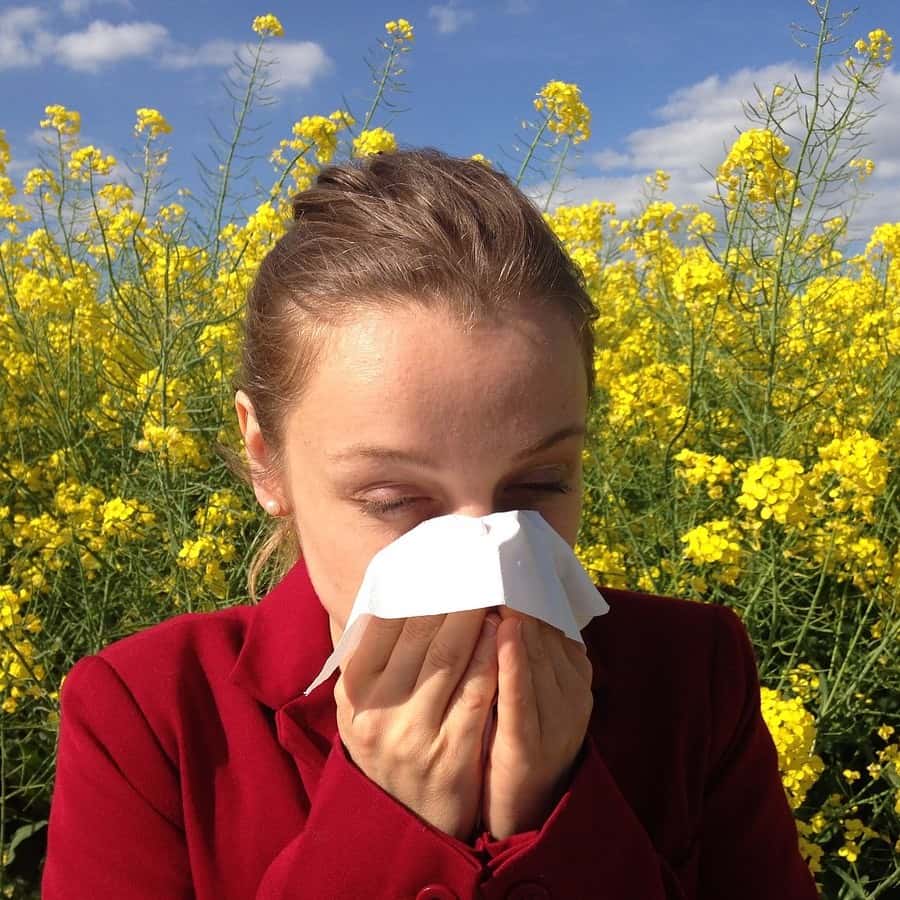
Quercetin is a flavonol, an antioxidant compound many plants make. Scientists have been studying this compound since 1857. Within the last decade, they have identified a number of health benefits it can provide (Current Medicinal Chemistry, 2018). In summary, it can lower blood pressure, improve the structure of neurons and help protect the body from infection. Several readers have noted another benefit. Should you be taking quercetin for your allergies? Two readers offer their testimonials.
The Potential of Quercetin for Your Allergies:
Q. I don’t typically get seasonal allergies, but long ago I read that quercetin can be helpful in easing symptoms. I have used it ever since to control the itchy eyes, runny nose and sneezing I occasionally experience. It’s been very effective without any side effects.
I gave some to a nephew who suffers from allergies regularly, and he also found it to be helpful. I take two 500 mg capsules when symptoms are annoying, along with 1000 mg of vitamin C, and 100 mg citrus bioflavonoids from citrus.
A. We appreciate your testimonial. Other readers have also found quercetin helpful for allergy symptoms. This flavonoid is found in many different plants, including apples, onions, citrus fruits, black tea, berries, capers and red wine. We can’t imagine eating enough capers or drinking enough wine to make a difference for allergy symptoms, though.
Research on Quercetin Is Promising:
Although research on natural approaches for allergies is limited, researchers have found quercetin promising (Complementary Therapies in Medicine, May 17, 2020). Comparative research found that quercetin is more effective than cromolyn (NasalCrom) in stabilizing mast cells and preventing the release of inflammatory compounds called cytokines (PLoS One, March 2012). Research in test tubes and on mice supports the usefulness of quercetin for nasal symptoms associated with seasonal allergies (Medicines, May 12, 2021).
Another Testimonial on Quercetin:
Q. I am 63 years old and have suffered from seasonal (pollen) and environmental (dust and mold) allergies for as long as I can remember. After reading in your newspaper column about quercetin, I decided to give it a try. I am so glad that I did!
Nothing, and I mean nothing, has helped as much as taking 500 mg of quercetin twice a day. I would like to use this daily year-round to prevent nasal allergies. However, I don’t think any studies have been done to see if it is safe long-term. What is your opinion?
A. Your experience is very interesting. Quercetin is a natural flavonoid found in foods such as berries, fruits (apples, grapes), vegetables (onions, kale, broccoli, tomatoes), green tea and red wine.
Few Studies in Humans of Quercetin for Your Allergies:
Test-tube studies suggest ways quercetin calms allergic symptoms. However, we could find only a few clinical trials of quercetin for allergies. Japanese researchers used a related compound, isoquercitrin, in a study of people allergic to Japanese cedar pollen (Allergology International, Sep. 2009). This two-month placebo-controlled trial demonstrated that the compound controlled itchy, red eyes.
Italian researchers studied a supplement called Lertal® that contains quercetin along with Perilla extract and vitamin D3 (Italian Journal of Pediatrics, July 18, 2019). Children taking the supplement were much less likely to have allergy symptoms or need rescue medications than those on usual care. The researchers envision the supplement as an effective preventive treatment for allergies long term. That suggests you could comfortably continue taking quercetin for your allergies.
Other Health Benefits of Quercetin:
In addition to its role in controlling allergy symptoms, quercetin appears to improve insulin sensitivity. In the future, clinical trials will show whether it is valuable for reducing type 2 diabetes (Current Medicinal Chemistry, 2017). Moreover, other scientists have proposed that it may be helpful for treating certain cancers (International Journal of Molecular Sciences, June 28, 2019). Most recently, doctors have considered whether quercetin has potential for treating COVID-19 (Aging, March 30, 2020). Researchers have not yet conducted clinical trials to see whether this flavonol will be helpful. We discussed the possible reasons that it is interesting in this earlier post.
Have you taken quercetin for your allergies or for any other purpose? Tell us about your experience in the comment section.

